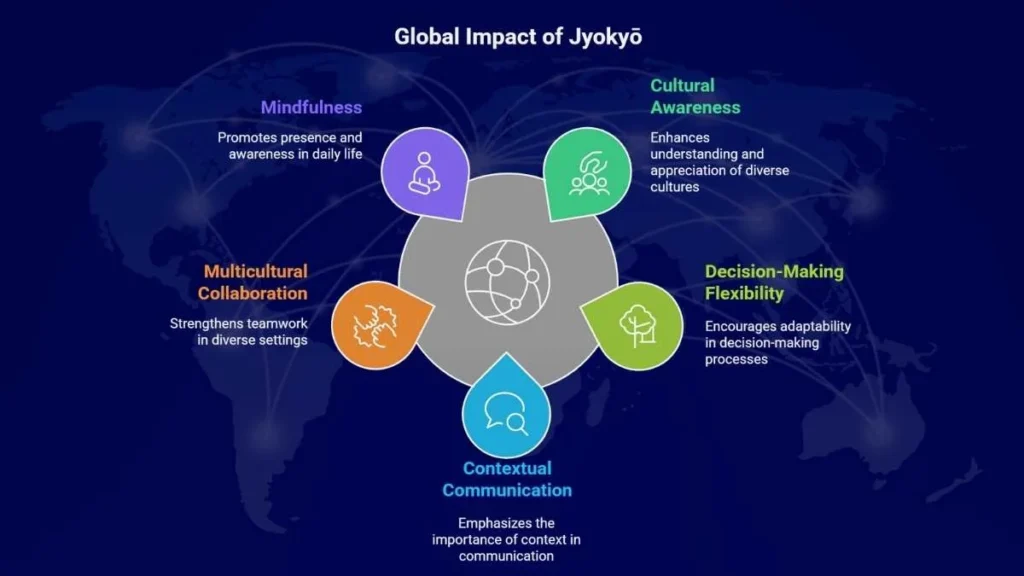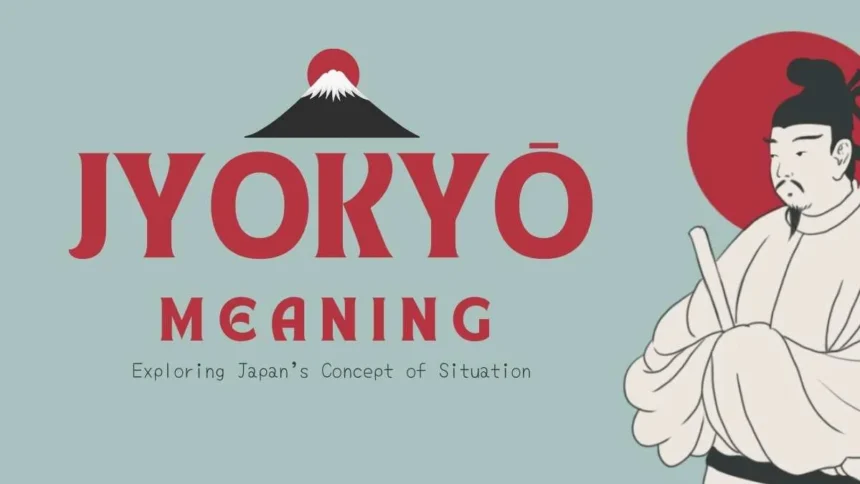Jyokyō is a Japanese term that means “situation,” “circumstances,” or “condition.” At its core, it reflects the current state of affairs in which events unfold. The word is not limited to one domain; it applies to personal life, business, culture, and even environmental discussions. When Japanese speakers use it, they are not only referring to facts but also to the broader context shaping outcomes.
- The Linguistic Roots
- Condition in Japanese Communication
- Jyokyō in Different Domains
- The Role of Context in Decision-Making
- Jyokyō in Times of Crisis
- Comparing with Western Concepts
- Jyokyō and Mindfulness
- Applications Across Professions
- Why Matters Globally
- Why Non-Japanese Learners Should Care
- FAQs
- Conclusion
In Japan, language is deeply tied to culture, and it reveals how much importance people place on context and adaptability. From casual conversations to formal reports, the term appears frequently. Understanding it goes beyond translation; it offers a glimpse into how Japanese society interprets reality, balances harmony, and responds to change.
The Linguistic Roots
The word Jyokyō (状況) is made up of two Chinese characters:
- 状 (Jō): form, appearance, or condition.
- 況 (Kyō): state, situation, or circumstances.
Together, they combine into “the form of circumstances.” This dual meaning captures both the visible and invisible elements of a situation, making it a powerful expression in Japanese communication.
Condition in Japanese Communication
Japanese communication places a strong emphasis on context and subtlety. Unlike cultures where direct statements dominate, Japan values indirectness, harmony, and sensitivity to circumstances. The word Jyokyō embodies this cultural tendency.

When someone asks about the Jyokyō, they are not merely requesting factual information. They are also seeking to understand the broader conditions, including emotions, social dynamics, or even unspoken tensions. This aligns with the Japanese concept of reading the air (kuuki wo yomu), the ability to sense and interpret the atmosphere of a situation.
For instance, in a workplace setting, an employee might say:
“状況を見て判断しましょう” (Jyokyō wo mite handan shimashō), “Let’s judge based on the situation.”
This phrase reflects flexibility and collective awareness rather than rigid decision-making.
Jyokyō in Different Domains
| Domain | Example Phrase (Japanese) | English Meaning |
| Personal Life | 勉強の状況 (Benkyō no jyokyō) | Study situation |
| Business | 経済の状況 (Keizai no jyokyō) | Economic condition |
| Environment | 環境の状況 (Kankyō no jyokyō) | Environmental state |
| Politics | 政治の状況 (Seiji no jyokyō) | Political circumstances |
| Crisis Reports | 災害の状況 (Saigai no jyokyō) | Disaster situation |
The Role of Context in Decision-Making
Unlike in many Western cultures, where directness is emphasized, Japanese society often gives weight to the surrounding context. The concept of the Japanese “situation” reinforces this approach.
- Politeness: Speech levels change depending on circumstances.
- Group Harmony: Decisions prioritize the collective over the individual.
- Problem-Solving: Solutions are shaped by the environment rather than confrontation.
This reflects the Japanese cultural value of flexibility and harmony.
Jyokyō in Times of Crisis
Japan is no stranger to natural disasters, and here the word Jyokyō becomes indispensable. During earthquakes, floods, or typhoons, news reports constantly update the public on the situation in affected areas.
For instance, during the 2011 Great East Japan Earthquake, officials described the Jyokyō of evacuation centers, infrastructure, and safety measures. This ensured that people understood both immediate risks and evolving conditions.
Comparing with Western Concepts
While the English term “situation” may seem close, Jyokyō is more layered. In English, “situation” often points to a specific event. In Japanese, it expands to include the broader context: relationships, atmosphere, and future consequences.
Example:
- English: “The situation is bad” → concrete problem.
- Japanese: “状況が悪い” (Jyokyō ga warui) → covers morale, external pressure, and hidden dynamics.
This holistic approach reflects how Japanese people see events as interconnected rather than isolated.
Jyokyō and Mindfulness
An important cultural link is the way the Japanese term for situation aligns with mindfulness. Evaluating circumstances before acting encourages presence and awareness. It connects with traditions such as Zen Buddhism, where careful observation of one’s environment is essential.
In modern life, this translates into patience and adaptability: qualities valued in both personal and professional settings.
Applications Across Professions
The term is not just philosophical but highly practical.
Business Strategy
Executives study the Jyokyō of markets before making moves, ensuring risk awareness.
Healthcare
Doctors discuss patients’ situations to include lifestyle, stress, and emotional conditions alongside medical symptoms.
Education
Teachers adapt lessons to a student’s situation, such as stress levels or family background.
Diplomacy
Negotiators assess the geopolitical situation, considering economic and cultural conditions during discussions.
Why Matters Globally
- Builds cultural awareness and reduces misunderstandings.
- Encourages flexibility in decision-making.
- Highlights the value of context in communication.
- Strengthens collaboration in multicultural environments.
- Promotes mindfulness in professional and personal life.

Why Non-Japanese Learners Should Care
For learners of Japanese, mastering it is about more than vocabulary; it is about cultural literacy. Recognizing how the word functions helps outsiders understand Japanese ways of thinking.
In global workplaces, this knowledge prevents miscommunication. For example, while a Western manager might expect quick decisions, a Japanese partner may prefer to “see the Jyokyō” before committing.
FAQs
Q1: Is Jyokyō used in Japanese literature or poetry?
Yes, it often appears in modern works to set emotional or environmental context.
Q2: Can it describe future circumstances?
Although it mainly refers to the present, it can imply anticipated conditions based on current trends.
Q3: Is Jyokyō considered a formal word in Japan?
It is versatile, suitable for both casual conversations and formal reports.
Conclusion
Jyokyō (状況) is not just a word but a lens through which Japanese culture views reality. It expresses conditions, circumstances, and states of affairs while emphasizing harmony and context. By exploring its usage, one sees how deeply it influences personal life, business, education, and even national resilience during crises.
For global learners, understanding it provides both cultural insight and practical wisdom. It teaches adaptability, an essential skill in today’s ever-changing world.






